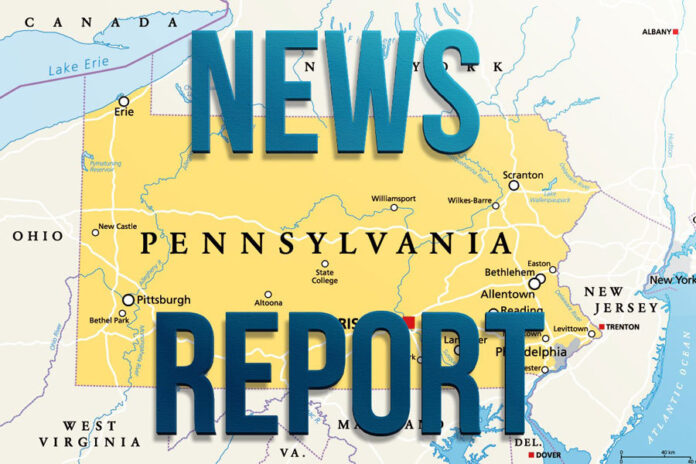Scranton Times-Tribune. August 28, 2023
Editorial: Poor call on police records
Gov. Josh Shapiro erred against the public interest in a debate regarding access to a state-assembled database of certified police officers.
Shapiro’s office rejected a request from a national news federation to help news agencies access public information about police officers that state police compile, Spotlight PA reported.
The information includes officers’ names, ranks and employment histories. It is public information.
In declining the request, a spokesman for Shapiro said the state police are not responsible for Pennsylvania’s 1,300 other law enforcement agencies and would not know what officers from other police departments engage in “dangerous undercover or covert operations.”
The decision aligns with a Commonwealth Court ruling in 2014 that state police did not have to release such information because the bureau was not aware of which police officers did undercover work and it could not redact their names.
But a reasonably easy solution appears obvious.
During the last four years, 34 states have provided news access to police registries without risking public safety. Some states simply notify local police agencies of the request and let those departments identify undercover officers, whose identities remain secret.
Fourteen other states have rejected similar requests. They excuse local police officers from disclosure of the identities and positions of government workers who collect taxpayer-funded compensation.
It is a bad policy. Scranton, Philadelphia, Pittsburgh and other cities, along with the state government, provide lists of employees including police officers.
Secrecy affecting the identities and employment histories of police officers can compromise accountability and hobble oversight in hundreds of state municipalities that fall under the exclusion. Open access to identities of police officers who are responsible for assuring law and order clearly benefits the public.
Shapiro should reverse his position.
___
Pittsburgh Tribune-Review. August 29, 2023
Editorial: Pennsylvania’s education funding should be rebuilt
Pennsylvanians have spent years — decades, really — begging the state to find a better way to fund education.
School districts in the Keystone State operate primarily on real estate taxes. An April report from advocacy group PA Schools Work estimates that 84% of the 500 school districts in Pennsylvania are inadequately funded because of a lack of state funding.
That is consistent with a Commonwealth Court ruling that points to something everyone already seemed to know: Schools in Pennsylvania aren’t funded fairly. Some schools have well-equipped computer labs and science programs. Others are focused on the bare minimums; one resorted to begging online for paper.
When it comes to building projects, the confusion of a state program could make things even worse.
Pennsylvania partially funded construction or renovation projects for years via PlanCon, a convoluted multistep process that calculated reimbursement of a portion of a new or remodeled school. That program had a moratorium on new submissions in 2012.
A new act was passed in 2019. It is also not accepting applications at this time. Why? Unsurprisingly, money.
“The problem is they haven’t funded it,” said Sherri Smith, executive director for the Pennsylvania Association of School Administrators. “So, the framework is there, and there’s been a lot of discussion about it. School construction is another big facet of ensuring opportunities for students based on an equitable method of funding.”
Why does this matter? Because school infrastructure is wildly expensive. Ask Hempfield Area School District, where a major renovation project at the high school ballooned by millions between design and bidding.
The high cost of school projects can be catastrophic for district budgets and the taxpayers that fund them. See Penn Hills School District, where construction projects were a big part of the fiscal woes that landed them in “financial recovery.”
Students deserve comparable education and assets whether they are in Tarentum or Fox Chapel, Jeannette or Murrysville. At the same time, the taxpayers deserve consistent, reasonable taxes that don’t shoot up because their district had to take out $200 million in bonds to pay for a building project that once qualified for 25% reimbursement from the state but now doesn’t.
The state has owed Pennsylvanians more than money for a long time. It owes common sense tax reform for education.
___
LNP/LancasterOnline. August 23, 2023
Editorial: Bad government: Once again, the Pennsylvania Senate fails to come through for survivors of childhood sexual abuse
This is what government should not do: fail to offer relief, year after year, to adult survivors of childhood sexual abuse.
As Spotlight PA’s Stephen Caruso reported last week, “Survivors of childhood sexual abuse must continue waiting for their day in court after the Pennsylvania General Assembly failed to meet the deadline to get a proposed constitutional amendment on the November ballot.
“This failure continues nearly two decades of idleness, intrigues, and slip-ups that have blocked a measure that would give thousands of survivors a two-year window to seek monetary damages against their abusers and the institutions that shielded the accused.”
The civil statute of limitations had expired for many of these survivors before they even knew such a statute existed.
We have repeatedly implored state lawmakers to pass a two-year litigation window so survivors can face their abusers in civil court and hold accountable those who enabled their abuse.
The survivors are not merely seeking financial compensation, but discovery of their case documents, which, in instances of abuse committed by Roman Catholic priests, had been locked in secret archives by bishops who sought to protect both the abusers and enablers.
We were appalled when former Gov. Tom Wolf’s Department of State committed an administrative error that sank a constitutional amendment in 2021.
Now, abuse survivors are being asked to wait for justice yet again.
As Manuel Bonder, spokesperson for Gov. Josh Shapiro, told Spotlight PA, a bill already has passed in the state House that, if passed by the Senate, would eliminate the need for a constitutional amendment and legislate a two-year civil litigation window. It could be signed without delay by Shapiro, who, as state attorney general, fought for the public release of a seismic grand jury report detailing child sexual abuse in six Pennsylvania Catholic dioceses and the institutional cover-up of decades of harrowing crimes against children.
But state Republican leaders have resisted enacting a litigation window through traditional legislation, asserting that it would be unconstitutional. They have insisted on going the constitutional amendment route and only if two other proposed amendments were also placed on the ballot: one that would impose stricter voter ID requirements and another that would enable the Legislature to overrule the governor on environmental and business regulations.
It is despicable to use childhood sexual abuse survivors as pawns to win partisan political advantage.
The state Senate Republican Caucus announced Monday that it would reconvene Aug. 30 — several weeks earlier than expected — to tie up loose ends in the 2023-2024 state budget process. Republican Senate leaders seem to want praise for returning from their extended vacation to do their jobs.
But given their treatment of survivors of childhood sexual abuse, we’re not inclined to give it.
GET HELP
Office of Attorney General’s Clergy Abuse Hotline: 888-538-8541.
24-hour sexual assault hotline: 717-392-7273.
Report suspected child abuse to ChildLine: 800-932-0313.
___
Wilkes-Barre Citizens’ Voice. August 26, 2023
Editorial: Restructure public school governance
Public school governance in Pennsylvania often is a train wreck because even though things aren’t what they used to be, state law covering school boards have not evolved to reflect that. School governance, from the calendar through the organizational chart, largely reflects a bygone era.
Poor school governance, as in Scranton and some other local districts and others across the state, proves that taking nine people off the street and putting them in charge of complex enterprises that spend hundreds of millions of dollars a year is not a sound management model.
To be sure, serving as a conscientious school director is the definition of a thankless task. It’s a volunteer position that entails enormous responsibility and a great deal of work. People who enter the positions with the best of intentions often are overwhelmed while dealing with political pressures, stressed taxpayers, emotionally invested parents and an array of social dysfunction that shows up in schools.
Lawmakers tend to proposed incremental reforms. Republican state Rep. Valerie Gaydos of Allegheny County, for example, has proposed a bill that would diminish the perpetual problem of nepotism by precluding close family members of district employees from serving on school boards.
That would preclude conflicts of interest regarding hiring and promotion, and would ensure that board members serve the community rather than their own economic interests.
But as damaging as it is, nepotism is just one aspect of how school governance goes awry. Earlier this year, Democratic Rep. Joe Webster of Montgomery County raised three ideas that would produce more robust reform.
One would eliminate the prohibition on compensation for school directors, which might help produce more qualified candidates for more seats. It would allow voters in districts to decide whether directors could be compensated comparably to municipal government officials.
More important, another proposal would increase training for directors. And it would provide tuition at Pennsylvania State System of Higher Education universities for courses relevant to public administration and school governance.
Ultimately, the state government should examine an entire new school governance structure including smaller, paid, well-educated school boards far better equipped to handle modern school governance.
END























